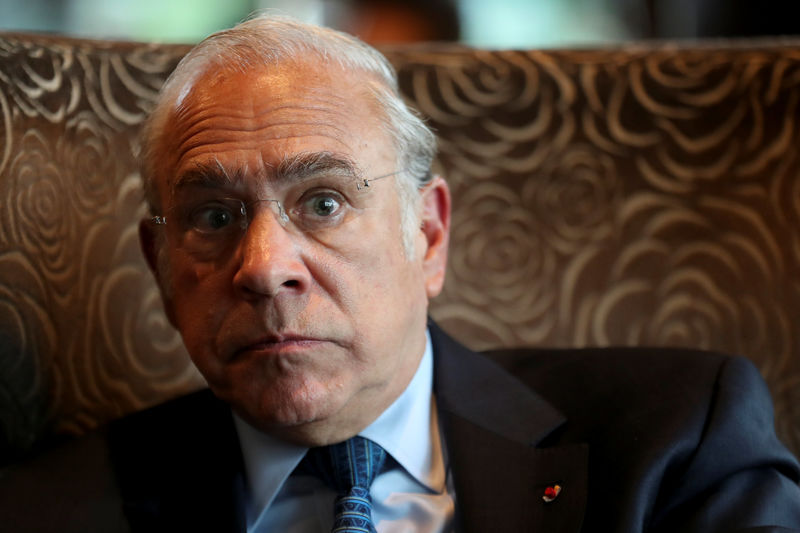(Bloomberg) -- Explore what’s moving the global economy in the new season of the Stephanomics podcast. Subscribe via Apple Podcast, Spotify (NYSE:SPOT) or Pocket Cast.
When it comes to a U.S.-China trade deal, Angel Gurria will believe it when he sees it.
Conflicting statements about the likelihood and extent of any agreement between the world’s two largest economies mean the head of the OECD still sees “downside risks” for the global economy.
In the meantime, markets get whipsawed as they try to digest signals on what’s going on in the trade talks. Equities in Asia and Europe fell on Wednesday after comments from Donald Trump that the U.S. will increase tariffs on China if phase one of an agreement isn’t secured. That put a dent in optimism that had sparked a recent rally in stocks and pushed some benchmarks to record highs.
“Confidence is like a rollercoaster,” Gurria said in a Bloomberg TV interview with Francine Lacqua. “One day it looks like we may have an agreement and it goes up and the stock market soars. And then suddenly there’s a statement suggesting that it may not be so imminent and it goes down like a lead balloon.”
He said the uncertainty from trade tensions is still proving a huge weight on the global economy by stifling investment.
Confidence is “very vulnerable” and “brittle,” Gurria said. “There’s so many things that could go wrong. The downside risks are still very high.”
